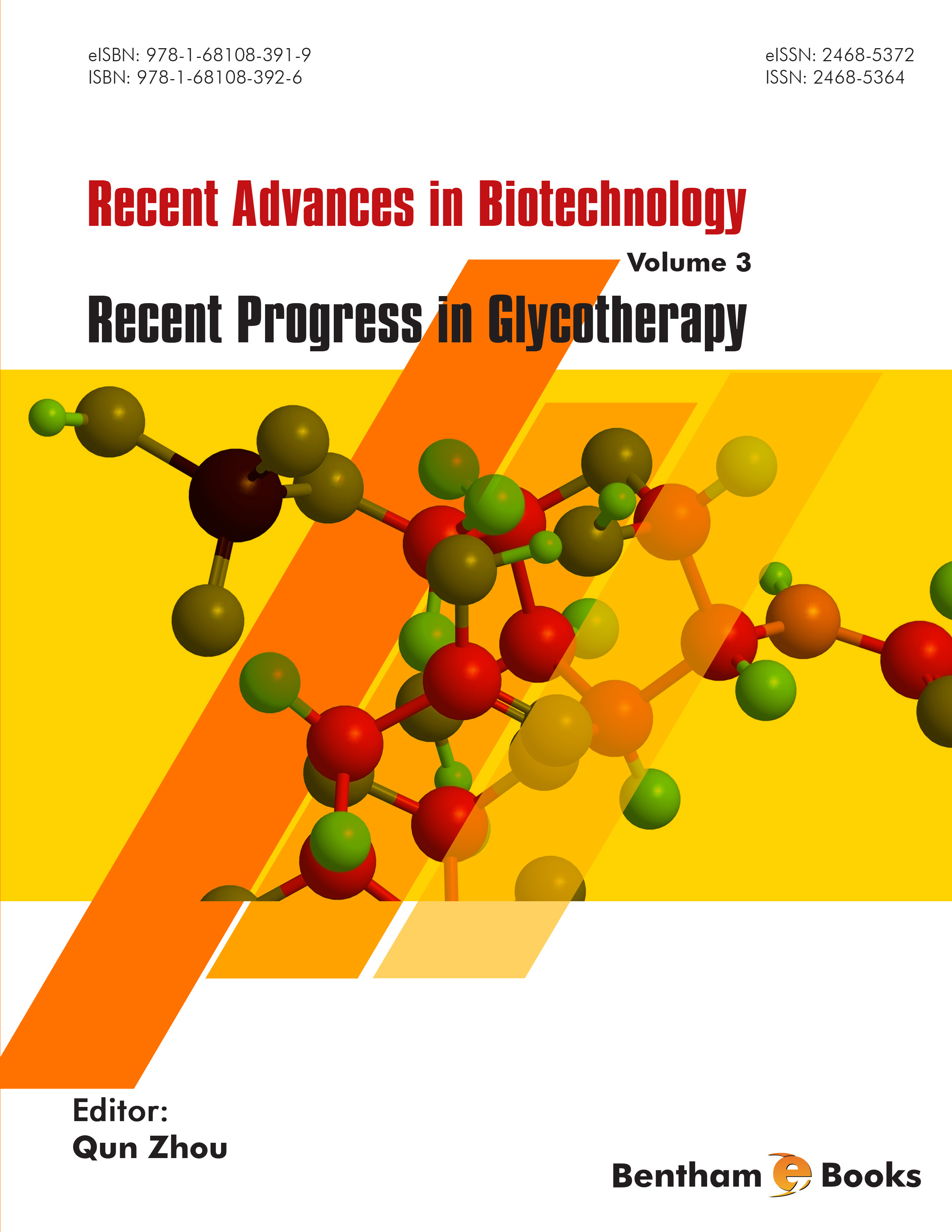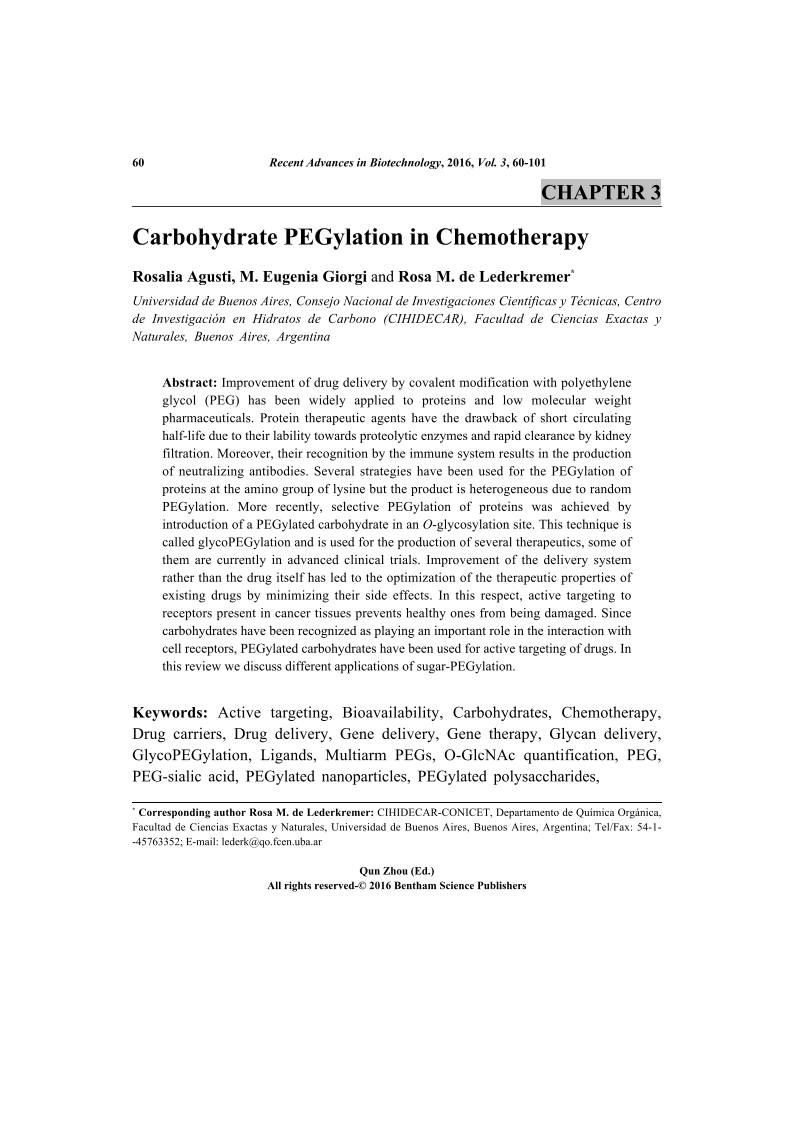Carbohydrate PEGylation in Chemotherapy

- Authors: Rosalia Agusti, M. Eugenia Giorgi, Rosa M. de Lederkremer3
-
View Affiliations Hide Affiliations3 CIHIDECAR CONICET, Departamento de Química Orgánica, Facultad de Ciencias Exactas y Naturales, Universidad de Buenos Aires, Buenos Aires, Argentina
- Source: Recent Progress in Glycotherapy , pp 60-101
- Publication Date: December 2016
- Language: English
Carbohydrate PEGylation in Chemotherapy, Page 1 of 1
< Previous page | Next page > /docserver/preview/fulltext/9781681083919/chapter-3-1.gif
Improvement of drug delivery by covalent modification with polyethylene glycol (PEG) has been widely applied to proteins and low molecular weight pharmaceuticals. Protein therapeutic agents have the drawback of short circulating half-life due to their lability towards proteolytic enzymes and rapid clearance by kidney filtration. Moreover, their recognition by the immune system results in the production of neutralizing antibodies. Several strategies have been used for the PEGylation of proteins at the amino group of lysine but the product is heterogeneous due to random PEGylation. More recently, selective PEGylation of proteins was achieved by introduction of a PEGylated carbohydrate in an O-glycosylation site. This technique is called glycoPEGylation and is used for the production of several therapeutics, some of them are currently in advanced clinical trials. Improvement of the delivery system rather than the drug itself has led to the optimization of the therapeutic properties of existing drugs by minimizing their side effects. In this respect, active targeting to receptors present in cancer tissues prevents healthy ones from being damaged. Since carbohydrates have been recognized as playing an important role in the interaction with cell receptors, PEGylated carbohydrates have been used for active targeting of drugs. In this review we discuss different applications of sugar-PEGylation.
-
From This Site
/content/books/9781681083919.chapter-3dcterms_subject,pub_keyword-contentType:Journal -contentType:Figure -contentType:Table -contentType:SupplementaryData105

